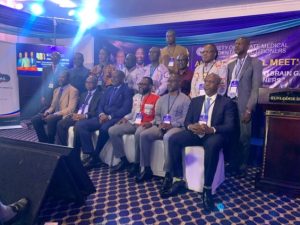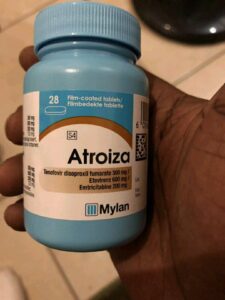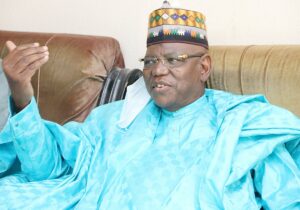How to improve healthcare system, by experts — Features — The Guardian Nigeria News – Nigeria and World News

While the right to health of many continues to dwindle, most people around the world, especially in low-income countries have little to no access to basic health care and as such, are denied their right to basic health benefits.
According to the World Health Organisation (WHO), at least 4.5 billion people, which is more than half of the world’s population, were not fully covered by essential health services in 2021 and therefore, the right to health of millions is increasingly coming under threat.
In commemoration of this year’s World Health Day 2024 themed; ‘My Health, My Right’, experts recommended a change in the strategy of operations of some of the key areas of the health sector. They also suggested ways to help improve the health care system and outcomes for Nigerians.
The Director General, Nigerian Natural Medicine Development Agency (NNMDA), Prof Martins Emeje told The Guardian that the healthcare system in the country is poor and would continue to have the same outcome unless health is domesticated.
He argued that the health system is not making any significant headway because it is still a testing market. He said, “The reason why we are not doing well is that we are repeating what we have been doing for the past 100 years and expecting a different outcome, which will not yield any useful outcome.
“We need to change strategy by domesticating health. We are practicing imported health and that is the reason we are not making any significant headway; we are still largely a market for testing the health apparatus of other countries.”
Emejeemphasised the need to prioritise research and development of natural medicine. “Research and development in health should be a top priority and does not necessarily have to be government-driven.
“The private sector should have a role to develop and refine these products that are available to our people in communities so that it can be accessible to them. Everything should not be left in the hands of government as financial resources are scarce.”
“Explaining how traditional medicine would help fill the gap created by modern medicine regarding the current economic situation and the challenge of counterfeit drugs in the country, Emeje said, “They are already filling the gap, especially in most of our rural areas where modern medicines are not readily accessible and even when they are available, they’re not affordable.
“Most of our people in such areas go to traditional medical practitioners in their villages when they are sick. Every village that you go to in this country, knows families that can cure malaria, typhoid, mental sickness, or whatever. They know families that can do bone-setting, traditional delivery for pregnant women. It’s our cultural heritage.”
He said the agency is embarking on training traditional medical practitioners in quality assurance, standardisation, and ensuring documentation. We plan to escalate it in all the 774 local governments. The most important material that traditional medical practitioners use is herbs, and herbal medicine is a huge market, and the global herbal market will be $5 trillion by 2050.
“We have also decided to establish research farms in the 774 local councils so that we can cultivate medicinal plants for particular and specific diseases in those local governments, and this is how we can change the narrative,” he said.
The Director General, Nigerian Institute for Medical Research (NIMR), Prof Babatunde Salako, explained that the new leadership at the Ministry of Health is making attempts at improving and adopting strategies that are bound to have a positive impact on the health system.
“Currently, we are losing a lot of care workers to greener pastures abroad and the ministry has rightly directed colleges of medicine, faculties of medicine and the medical and dental association of Nigeria to see how we can increase the number of intakes for the production of doctors.’’
“The same directive has been given to other agencies that are regulating the production of other healthcare systems. These are attempts by the ministry to ensure that we can produce more healthcare workforce so that Nigerians will continue to have access to health.
“We are in a stage where a weaker system is gradually becoming stronger, and we will be able to provide access to health; we may not be meeting the basic rights now, but we seem to have future opportunities to do that with the current approaches the ministry of health is taken now,” he said.
Salako highlighted awareness, collaboration, and partnership as some of the measures needed to address the rising non-communicable diseases (NCDs) like diabetes, hypertension, and cardiovascular-related conditions in Nigeria.
“The number one thing is to ensure people are aware of these diseases and what to do if they suspect they have it and where to go for screening for the presence or absence of diseases. We also need to work in partnership with others; collaborate to investigate the newer agents for treating hypertension, diabetes and others,” he said.
The professor insisted that the healthcare infrastructure can respond to public health emergencies like pandemics and outbreaks, adding that what is needed is a strong partnership with development partners and international organisations.
“I believe that once government supports NCDC, with the right structures and ensuring they’re in a good state to carry out continuous surveillance, training of health care workers in epidemic response, we should be able to work with other regional bodies to share data and ideas, as well as ensure disease outbreaks are monitored,” Salako added.








